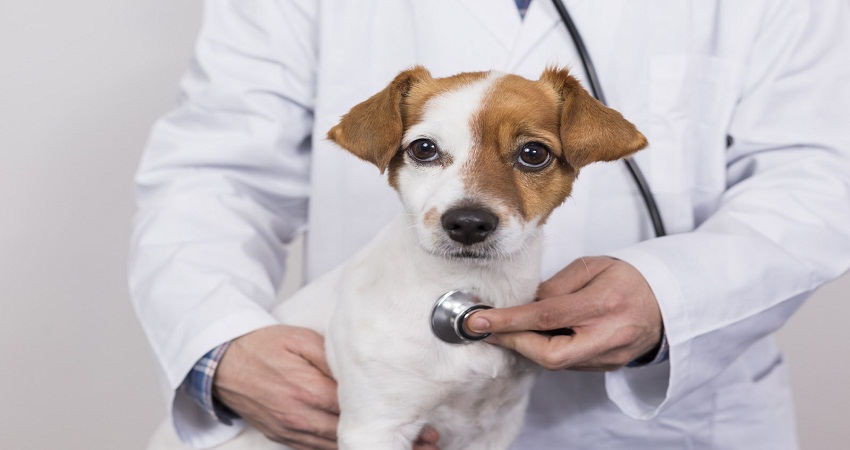Whether you have a dog or cat or even both of them, vet appointments are an essential part of life when owning a pet. They can be infrequent, perhaps only for yearly vaccinations and annual health checkup with their veterinarian, or maybe you need to visit the clinic a bit more often to manage a chronic disease or severe condition. Regardless of the reason, at some stage in your fluffy friend’s lives, they will have to see a vet.
It’s no secret that most animals hate vet and grooming visits. But can you blame them? Getting touched, poked and prodded upsets their daily routine of eating, playing and sleeping. Also, there are bright lights, new smells and noises and other animals to contend with. Visits to the vet clinics can be overwhelming for pets, especially if they have had a bad memory associated with previous experience. Here are some recommendations you can take for helping your pet feel less stress at the vet’s office.
Don’t Use Your Pet’s Crate/Car Only For Vet Visits
Most pet owners bring the carrier out the night before or the morning of their dog or cat appointment. Since pets very quickly learn what the meaning of the carrier is, seeing their cage can send animals running. Try not to associate the carrier of your cats or the leash of your dog with a trip to the vet. Instead, bring out their carrier well in advance before their scheduled appointment if you can to give your pet some time to explore their carrier and make them more comfortable around it. You can also throw something familiar or comforting like an old t-shirt of yours to help build more trust around the carrier.
Also, when it comes to car rides, some animals never go in the car except for vet visits; this is particularly true with puppies and cats. This means that just getting into the car can stress out your pet. To avoid that, get your pet familiar with the car and try to take your fluffy friend to places other than the vet’s clinic from time to time.
Bring A Favourite Toy
Most pets will have that one stuffed animal, chew thing or favourite blanket they turn to when they are not feeling 100%. As you prepare for your vet visit, make sure to pack this with you to your appointment. In case your pet should stay overnight, or for a couple of days, request that the vet keeps their favourite toy or item in their sleeping area.
The comfort and familiarity provided by such a small item cannot be overstated. It might help to feel your pet more secure, just like a teddy bear does for a child. They will likely take it with them from the moment they get in the carrier or car, to the moment they return home from the vet.
Try Out CBD Oil
CBD oil (also known as cannabidiol) is a natural and effective remedy that provides various health benefits not only for humans but also for all mammals, including horses, cats and dogs. Since your pet also has a complex endocannabinoid system, using CBD oil for dogs or cats can help to relieve anxiety and stress, enhance mood and energy and decrease nausea and vomiting in case your pet gets carsick. Furthermore, CBD oil might be beneficial for diminishing pain and chronic aches, maintaining a healthier appetite, improving metabolism, burning fat, increasing heart health and promoting better health and wellbeing.
Additionally, CBD oil is a high source of different vitamins, minerals, antioxidants and fatty acids such as vitamin A, vitamin C, vitamin E, B-complex vitamins, protein, iron, zinc, magnesium, calcium and many other dietary nutrients. All these components are essential for completing the nutritional requirements of your animal. Of course, always consult your vet before making such adjustments in your pet’s diet and opt for the best CBD oil from proven companies only.
Limit Your Time In The Waiting Room
Nothing stresses an anxious cat or dog like an extended period in a noisy and crowded waiting room full of all sorts of smells. The longer the wait in the lobby, the more amped up your pet can become. It’s also possible for an animal to sense other pets’ fear, which in turn can increase his or her own anxiety.
If you know your fluffy friend gets scared around other animals or new people, try to wait outside or in the car if possible, or ask the receptionist at the vet’s office if you can wait in an available exam room. A little privacy away from the chaos can help to keep stress levels down.
Furthermore, consider booking an appointment early in the day or choose a quiet time of the day to avoid waiting too long and limit the time you spend in the vet clinic. Visiting when your wait time is faster, and there are fewer other animals around will be less stressful for your pet.
Reward Good Behaviour
Positive reinforcement is probably one of the most useful tools for a pet owner. Therefore, make sure you don’t visit the vets without plenty of treats so you can reward good behaviour throughout the vet visit. Try to keep meals light to help sustain an appetite and reward your pet with his or her favourite treats in the waiting room, in the exam room and when they are showing relaxed or other positive behaviour.
Obviously, you will also want to reward your pet as the doctor handles him and after any treatment or checks, which will help to reinforce that a vet clinic is a place where rewards are plentiful.

